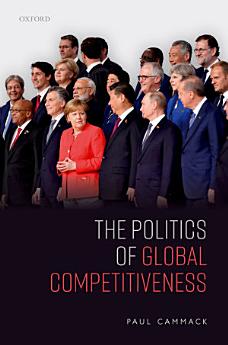The Politics of Global Competitiveness
Peb 2022 · Oxford University Press
E-book
224
Mga Page
family_home
Kwalipikado
info
reportHindi na-verify ang mga rating at review Matuto Pa
Tungkol sa ebook na ito
Marx predicted in Capital (1867) that as capitalism became global, patterns of work would be transformed, and workers would need to develop versatility, flexibility, and mobility. This 'general law of social production', as he called it, is now in evidence all around us, in global value chains, 'zero hours' contracts, and contract work organised through digital platforms. It results from competition between capitalists, scientific and technological revolutions in production, and incessant advances in the division of labour as production processes are broken down into ever smaller steps. This book documents the leading roles of the Paris-based Organisation for Economic Cooperation and Development and the Washington-based World Bank as advocates of these developments. They do not, as generally supposed, simply represent the interests of the advanced economies or the 'West' and their transnational corporations. They promote a single global model of capitalist development, without limits and on a genuinely global scale. It calls upon all states to 'adjust' continually to the structural and social demands of competitiveness, which they see as essential to the global hegemony of capital over labour. The OECD and the World Bank propose policies that give girls and women equal access to education and paid work, reform welfare to 'make work pay', introduce flexible labour contracts that make 'hiring and firing' easier, focus education on skills that boost employability, and draw workers in the developing world from the 'informal' sector into the formal sector, where they can be more productive. This is the politics of global competitiveness.
Tungkol sa may-akda
Paul Cammack taught at the University of Manchester, Manchester Metropolitan University, and City University, Hong Kong, before retiring in 2015. His initial interest in Latin American and Third World politics developed into a broader focus on global political economy, and most recently on the politics of social reproduction. His main empirical interests are in politics of international organisations, which he addresses from a classical Marxist perspective.
I-rate ang e-book na ito
Ipalaam sa amin ang iyong opinyon.
Impormasyon sa pagbabasa
Mga smartphone at tablet
I-install ang Google Play Books app para sa Android at iPad/iPhone. Awtomatiko itong nagsi-sync sa account mo at nagbibigay-daan sa iyong magbasa online o offline nasaan ka man.
Mga laptop at computer
Maaari kang makinig sa mga audiobook na binili sa Google Play gamit ang web browser ng iyong computer.
Mga eReader at iba pang mga device
Para magbasa tungkol sa mga e-ink device gaya ng mga Kobo eReader, kakailanganin mong mag-download ng file at ilipat ito sa iyong device. Sundin ang mga detalyadong tagubilin sa Help Center para mailipat ang mga file sa mga sinusuportahang eReader.





